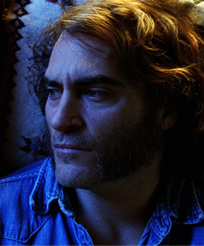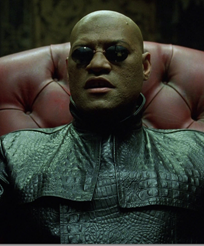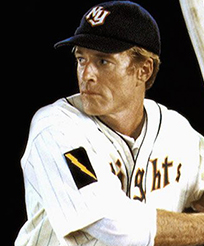Not to put too fine a point on it, but perhaps the best way to describe director Joe Swanberg’s Netflix series Easy—the brilliant second season of which dropped on last week—is that it is, in fact, “easy.” The series is a collection of eight half-hour vignettes, taking place in or around Chicago, with a special cast of deliciously un-special characters: the mildly successful graphic novelist; the stand-up comic who drives Uber; the local feminist art curator; the middling stage actor. Even those who have interesting professions—the pro-slut blogger/escort in episode three, for example—are rendered ordinary. Some of the characters are new; others were featured in season one; others still are featured in episodes of which they are not the focus, as bit players. In this way, Easy seems, at times, less like a typical scripted TV show than an alternate Chicago-verse populated with characters Swanberg has wound up and let go.
This is, in part, because of how Swanberg works—off a basic outline, versus a precisely worded script, which allows his actor ample room to breathe, or “play,” as they did in his most well-known films, Drinking Buddies and Digging for Fire. The result, in Easy, is a series of tightly-plotted episodes that nonetheless feel loose. Swanberg, a veteran independent filmmaker, operates with a light touch; other than some interesting perspective shifts, he mostly gets out of the way. That he contains the drama across all episodes within a particular register—catching a suburban package thief matters as much in Swanberg’s world as a 17-year-old girl who donates $50,000 to her church to make a point to her parents—amounts to a distinctive, Midwestern realism: the highs nor the low ever threaten to spin out of control. Most of the episodes end, if not happily, then at least tenderly. And the characters are decidedly Midwestern in their ambitions—to put on an amateur burlesque show, or brew a great coffee stout; where Portlandia, perhaps one of Easy’s closest analogues, would ironize the quiet pursuits of its denizens, Swanberg’s Chicagoans undertake them with a real sincerity. (Full disclosure: I grew up and currently live in Chicago.)
The tone Swanberg establishes, and the dramatic range to which he confines the show, have a leveling effect, particularly as it relates to Easy’s poignant portrayals of sexual and romantic relationships. One of the best episodes, “Open Marriage,” revisits a working mom, Andi (Elizabeth Reaser), and a stay-at-home Dad, Kyle (Michael Chernus), who, in the first season, were attempting to spice up their sex life. In season 2, they’ve decided to try an open marriage—or, rather, Andi has decided, and Kyle has decided to go along with it for Andi’s sake. Both Andi and Kyle score on their first night out—Andi with a handsome charmer she meets at a bar before her date with someone less handsome and charming, Kyle with a co-worker from the theater where he rehearses. Both of their sexual trysts are highly imperfect; Andi and Kyle seem amused at the novelty of what they’re doing while they’re doing it. The former is giggly; the latter is withholding. There is a pervasive sense of unease, but it’s exciting, too. The verisimilitude is sexy; if Hollywood’s typical sex scenes maintain a professional gloss, Easy’s are scintillatingly amateur. The realness of these moments ground the ending: having felt their titillating discomfort in strangers’ beds, you experience the comfort of familiarity as Andi and Kyle snuggle up to each other in their own.
Two other highlights from this season prove deeply moving for similar reasons. “Conjugality,” starring Marc Maron, reprising his role from season one as a semi-famous graphic artist, finds his character attempting to reconnect with his ex-wife (Michaela Watkins). Maron and Watkins chemistry simmers. The episode is a sneaky heartbreaker, as much for what happens as what doesn’t, as much for what’s said as what never can be. In the season finale, “Baby Steps,” Samantha (Megan Ferguson), leaves her 2-year-old daughter, Abby, in the care of a recently dumped babysitter, Annie (Kate Micucci), when her addict husband overdoses. Other directors may’ve mined Samantha’s plotline for drama. Yet Swanberg decides to keep the focus on Annie’s pleasant experience with Abby, eschewing easy melodrama for a much subtler, more profound story about rebuilding a new life, however imperfect, after the one you thought you had has fallen to pieces.
To be fair, the series has a few missteps. “Prodigal Daughter,” about a high-school senior who donates all her savings to the church to prove a point about her parent’s faux-piousness, has an After School Special-y preachy-ness to it, and an ending that veers on mawkish. The casting of Dave Franco as a dissatisfied brewmaster in “Spent Grain” is also confounding. While his storyline provided a kind of through-line for season one, his performance is at odds with Swanberg’s realism—you can almost feel him straining to act like he’s not acting.
It’s remarkable, though, how well the second season of Easy works as a TV show. Though the series wisely resists drawing taut its disparate cast of characters, they manage to hang together—adjacently; loosely; inconsequentially—unified by Swanberg’s sensibility and the specificity of his version of Chicago. Most groundbreaking TV shows are cognizant of the boundaries they’re pushing. Easy feels revelatory for the opposite reason: it doesn’t seem to know, or care, that the boundaries are there.













